Autobiography of Taveau D’Arcy
“To know the love of God that passes knowledge and be filled with the fullness of God” Apostle Paul Ephesians 3:19
Ministry Philosophy: Unity Amid Diversity
In my ministry, I welcome and respect all races, music styles, and theological traditions — from non-charismatic to charismatic, Pentecostal, and everything in between. While we may completely disagree on theology, I believe in the Apostle Paul’s wisdom in Philippians 2:12: “Work out your own salvation with fear and trembling”
Implies: Let each one hear God and compare with the Bible as a Noble Berean.”
When differences arise, I am committed to preserving relationships, following the model of “the wisdom from above” described in James 3:17. This wisdom is pure, peaceable, gentle, full of mercy, and without hypocrisy. It reminds us that even when reproving or correcting as led by the Spirit (2 Timothy 3:16-17), we must do so in a way that fosters love and unity, not condemnation or accusation.
Commitment to Biblical Integrity
I firmly believe in the unchanging truth of God’s Word. The Bible is the foundation upon which all theology and practice must be built. While I am open to adapting my heart, methodology, and approach to align with the Spirit’s leading, I remain steadfast in my commitment to honor Scripture as it is, without altering it to suit personal preferences or societal trends.
This balance — holding fast to biblical truth while embracing diverse expressions of faith and worship — has been central to my ministry. It is my prayer that we, as believers, can learn to navigate our differences with grace, humility, and a shared commitment to Christ’s teachings.
CROSS BODY UNITY MOTTO:
“We do not change God’s Holy Bible Word to please society or ourselves. Rather we choose to change US (our hearts) and OUR METHODOLOGY and OUR TONE.” Sister T

Early Life and Call to Ministry
I was called by God at the age of 24 during a pivotal time in American history — the aftermath of the Jesus Movement and the charismatic renewal. These were seasons marked by genuine spiritual awakening, devoid of the celebrity-driven culture we see today. It was during this calm yet powerful time that I first experienced the Holy Spirit’s whisper to study the Body of Christ.
My journey began with a simple, yet profound mission: to understand the doctrines, styles, and red-flag buzzwords of Christian leaders across the nation. God called me to explore all races, genders, and styles within the faith — including those who speak in tongues and those who do not. I did this without an overarching game plan, simply following the Lord’s direction in faith and obedience.
Ministry Philosophy
My approach has always emphasized the teachings of servant leadership as modeled by Jesus Christ. I reject authoritarianism, coercion, and dogmatic control, believing these are contrary to the nature of the First Church. Instead, I advocate for authentic, relational ministry based on mutual respect, biblical truth, and the power of the Holy Spirit.
Areas of Focus
My ministry spans several disciplines:
- Christian Leadership Training: I train leaders to adopt a non-authoritarian, servant-hearted approach to ministry that aligns with biblical principles.
- Racial Healing and Reconciliation: This has been a major focus of my work, as I believe the church is called to reflect the unity of heaven.
- Apostolic and Prophetic Insights: I have studied the rise of mega-churches, modern prophecy movements, and trends in charismatic circles, bringing a corrective perspective where needed.
Challenges and Personal Growth
Throughout my ministry, I have encountered many challenges, including false accusations, spiritual abuse, and misrepresentation. These experiences deepened my resolve to bring healing and compassion to those wounded by harsh, authoritarian practices in the church. My focus remains on building bridges and restoring relationships through the wisdom of Christ.
Writing and Creative Expression
In addition to my teaching and leadership, I am a prolific writer, composer, and blogger. My works often focus on addressing cultural and theological issues in the church while encouraging believers to grow deeper in their personal relationship with God.
Legacy and Vision
My heart is to see the Body of Christ reflect the unity and diversity of the early Acts Church. I desire to equip leaders, inspire creativity, and restore the joy of salvation to all who feel disillusioned or hurt by church systems. My ministry remains committed to the truth of Scripture, the leading of the Holy Spirit, and the love of Jesus Christ.
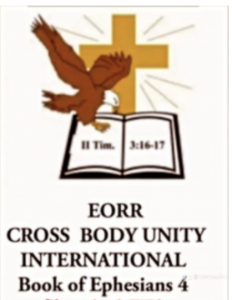
TD’S APOSTOLIC HISTORY LIFE IN EORR
Equality, Opportunity, and Real Respect for the OFFICE of EVERY Human Being Made in God’s Image
A foundational principle of my ministry is rooted in Psalm 139, which declares that every human being is fearfully and wonderfully made in the image of God. This truth compels me to advocate for Equal Opportunity Real Respect for all people, regardless of race, gender, social status, theology, or personal history.
The Value of Every Office and Calling
I believe every individual carries a God-given purpose, whether they are called to a leadership position, a supportive role, or simply to live as a witness of Christ in their daily lives. Each person’s unique design reflects a facet of God’s glory. True respect begins with recognizing this intrinsic value, seeing every human being as an “office” crafted and appointed by God.
God’s Image: The Foundation of Dignity
Psalm 139 reminds us that we are all intricately known and valued by God from the moment of our creation. This truth establishes the inherent dignity of every person. It is not our role to diminish others based on external differences, personal preferences, or theological disagreements. Instead, our responsibility is to uplift, affirm, and support one another in alignment with the teachings of Christ.
Equality in Opportunity and Ministry
In my ministry, there is no place for hierarchy based on race, gender, or denominational affiliation. Every individual should have the opportunity to grow, lead, and serve according to God’s calling on their life. This includes recognizing the spiritual gifts of women and men alike, affirming the contributions of diverse cultures, and celebrating various worship styles.
Respect That Transcends Differences
While we may not always agree on theology or practice, we are called to bear with one another in love (Ephesians 4:2). True respect requires humility, patience, and a willingness to listen. It also means allowing space for others to walk out their faith with fear and trembling (Philippians 2:12), trusting God to lead them in truth.
When disagreements arise, I draw from James 3:17:
“But the wisdom from above is first pure, then peaceable, gentle, open to reason, full of mercy and good fruits, impartial and sincere.”
This wisdom guides how we handle conflict — preserving relationships while standing firm on biblical truth.
A Call to Real Respect
Real respect goes beyond words. It is reflected in our actions, attitudes, and willingness to honor the God-given value of every individual. It is not about conformity but about celebrating the diversity of God’s creation while remaining unified in Christ.
I am committed to fostering a culture of honor in my ministry — one that acknowledges the sacredness of every life, upholds biblical standards, and embraces the full spectrum of humanity created in God’s image.

Equality, Opportunity, and Real Respect for Every Human Being
A cornerstone of my ministry is rooted in the profound truth of Psalm 139:13-14:
“For You created my inmost being; You knit me together in my mother’s womb. I praise You because I am fearfully and wonderfully made; Your works are wonderful, I know that full well.”
This Scripture reminds us that every human being, without exception, is intricately designed and cherished by God. From this foundation flows a call to Equality, Opportunity, and Real Respect — recognizing the God-given value in every person, irrespective of race, gender, culture, or personal history.
Scriptural Basis for Human Dignity
Created in God’s Image
- Genesis 1:27: “So God created mankind in His own image, in the image of God He created them; male and female He created them.”
Every person reflects God’s image, making us equal in worth and dignity. This equality is not earned through status or achievement but is inherent in our divine design.
God’s Love and Plan for All
- John 3:16: “For God so loved the world that He gave His one and only Son, that whoever believes in Him shall not perish but have eternal life.”
God’s love is universal, offered to everyone regardless of their background. - Acts 17:26: “From one man He made all the nations, that they should inhabit the whole earth; and He marked out their appointed times in history and the boundaries of their lands.”
This passage reminds us that God is the author of diversity, creating nations and peoples with distinct purposes and histories.
Respecting Every Office and Calling
Diverse Roles, Equal Value
- 1 Corinthians 12:12-27: Paul’s metaphor of the Body of Christ emphasizes the equal importance of every member. “The eye cannot say to the hand, ‘I don’t need you.’” Each person’s role is vital to the functioning of the whole.
Empowerment Through the Holy Spirit
- Joel 2:28: “And afterward, I will pour out my Spirit on all people. Your sons and daughters will prophesy, your old men will dream dreams, your young men will see visions.”
God’s Spirit empowers individuals without regard to age, gender, or societal status, affirming the value of every calling.
Equality in Opportunity
Breaking Barriers
- Galatians 3:28: “There is neither Jew nor Gentile, neither slave nor free, nor is there male and female, for you are all one in Christ Jesus.”
The gospel abolishes all human divisions, calling us to unity and equality in Christ.
Welcoming All into Ministry
- Romans 12:4-6: “For just as each of us has one body with many members, and these members do not all have the same function, so in Christ we, though many, form one body, and each member belongs to all the others.”
Every believer is equipped with unique gifts for the edification of the church, regardless of their background or identity.
Respect That Transcends Differences
Bearing with One Another in Love
- Ephesians 4:2: “Be completely humble and gentle; be patient, bearing with one another in love.”
Mutual respect requires humility and patience, especially in the face of differences.
Peaceful Resolution of Conflict
- James 3:17: “But the wisdom from above is first pure, then peaceable, gentle, open to reason, full of mercy and good fruits, impartial and sincere.”
This wisdom models how to navigate disagreements in a way that preserves relationships and honors Christ.
Commitment to Biblical Truth
While I believe in respecting all people, I am also committed to upholding the truth of God’s Word without compromise.
- 2 Timothy 3:16-17: “All Scripture is God-breathed and is useful for teaching, rebuking, correcting, and training in righteousness, so that the servant of God may be thoroughly equipped for every good work.”
Correction, when necessary, must be Spirit-led and relationally grounded, reflecting the fruit of the Spirit.
Real Respect in Action
Jesus’ Example of Inclusion
- Luke 7:36-50: Jesus showed respect and love for the woman who anointed His feet, despite the Pharisee’s judgmental attitude.
- John 4:7-26: Jesus broke social norms by engaging with the Samaritan woman, affirming her worth and revealing His identity as the Messiah.
Paul’s Appeal for Unity
- Philippians 2:3-4: “Do nothing out of selfish ambition or vain conceit. Rather, in humility value others above yourselves, not looking to your own interests but each of you to the interests of the others.”
Conclusion
Equality, Opportunity, and Real Respect flow from the truth that every human is made in God’s image (Psalm 139, Genesis 1:27). As believers, we are called to embody Christ’s love by honoring one another, embracing diversity, and standing firm on the unchanging truth of Scripture.
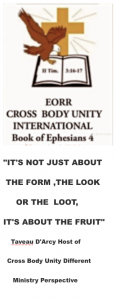
NOTE: this section is now “mentoring” which we want to begin ASAP but must be applied for. More Jan 2025
International Fellowship of Foundational Ministries (IFFM) Bio
The International Fellowship of Foundational Ministries (IFFM) is a global(by divine appointment) leader and fellowship network of Christian ministries, human God sent unique persons, that seeks to build a strong foundation for faith, leadership, and service, centered around the core teachings of Scripture. We believe that through the unity of believers, both local and global, we can advance the Kingdom of God in a world that desperately needs the transformative power of the gospel.
Key Verse: Ephesians 2:19-21
“Now therefore ye are no more strangers and foreigners, but fellow citizens with the saints, and of the household of God; And are built upon the foundation of the apostles and prophets, Jesus Christ himself being the chief corner stone; In whom all the building fitly framed together groweth unto an holy temple in the Lord.”
Ephesians 2:19-21 serves as the foundational scripture for the International Fellowship of Foundational Ministries. We believe that all believers, whether leader or layperson, are fellow citizens in God’s household and are being built into His spiritual temple. The work of apostles, prophets, and ministers is essential in laying a strong foundation, with Jesus Christ being the chief cornerstone.
Mission and Vision
IFFM is committed to fostering relationships that strengthen the Body of Christ, with an emphasis on doctrinal integrity, servant leadership, and biblical unity. We exist to empower leaders and believers to grow in their faith and to collaborate in ministry efforts that reflect Christ’s love and the mission He has called us to. Through mentoring and networking, we aim to bring believers from all walks of life into a deeper relationship with God and one another.
Core Beliefs
- The Authority of Scripture: We uphold the Bible as the inspired, inerrant Word of God, the ultimate guide for all matters of faith and practice.
- The Lordship of Christ: Jesus Christ is central to our faith—His life, death, and resurrection are the foundation of our salvation and service.
- The Empowering of the Holy Spirit: We believe that the Holy Spirit equips and empowers believers for service, teaching, and spiritual growth.
- Unity in Christ: We celebrate the diversity of the Body of Christ and promote unity through shared biblical truth, even as we recognize and respect our differences.
- Building Kingdom Impact: The mission of IFFM is to reach the world with the message of Jesus Christ through evangelism, discipleship, and social justice.
Key Areas of Focus
- Leadership Development & “MY Mentoring”:
At the heart of IFFM is a commitment to empowering leaders at all levels. Through MY Mentoring, we provide personalized guidance, encouragement, and biblical counsel to individuals who desire to grow in their leadership capacity. This approach ensures that leaders are trained in sound doctrine, leadership principles, and how to build strong, loving communities. Mentorship is a critical aspect of our work, helping leaders understand their calling and walk out their faith with integrity. - Global Outreach & Evangelism:
We are committed to spreading the gospel both locally and globally, equipping members to serve in missions, evangelism, and community transformation. IFFM partners with ministries and organizations worldwide to fulfill the Great Commission. - Ministry Collaboration:
As a fellowship, we value collaboration across denominations and cultural boundaries. Through shared efforts, prayer, and service, we work together to strengthen the Body of Christ and create a global impact. - Cultural Relevance:
IFFM is dedicated to reaching diverse cultures and communities with the gospel. By adapting our approach while remaining true to biblical principles, we ensure the gospel speaks to all people groups in ways that are meaningful and culturally relevant. - Social Justice and Mercy:
We believe that true discipleship includes addressing the needs of the oppressed, the poor, and the marginalized. We actively engage in initiatives that promote justice, peace, and mercy in the world, from advocating for the powerless to engaging in initiatives that meet practical needs.
“MY TD “IFFM Mentoring” Philosophy
The MYTD “IFFM Mentoring” program is not just an additional resource but an essential element of IFFM’s approach to ministry. This personalized mentoring is a process of one-on-one relational development where leaders and believers are taught not only to lead but to follow Christ in humility, faith, and obedience. It fosters spiritual maturity, practical leadership, and strong biblical grounding, ensuring that those mentored are equipped to lead in a Christ-like way in every area of life.
Membership and Partnership
IFFM invites individuals, ministries, and churches that align with our mission and values to become part of our fellowship. We emphasize that all members are committed to building foundational relationships based on mutual respect, doctrinal integrity, and love. Partnerships are encouraged to amplify ministry efforts in local and global contexts.
Conclusion
The International Fellowship of Foundational Ministries (IFFM) is a body of believers committed to building a strong foundation on Christ, the cornerstone of the Church. Through biblical teachings, servant leadership, and mentorship, IFFM seeks to build a global community of faith, hope, and love, equipped to fulfill the calling of God in every aspect of life. Through the MY Mentoring program, we ensure that leaders are nurtured in their calling and walk out the biblical principles in their leadership and personal lives, making a lasting impact in their communities and beyond.
For more information or to join the fellowship, please visit www.onlinefellowship.us or reach out to us for partnership opportunities.

To All Pure-Hearted Christian Believers and Ministers
I want to take this opportunity to remind every born-again believer, minister, and follower of Christ:
- I Am Pro-You, Even If I Disagree
I deeply value every believer and minister, regardless of whether we share the same perspectives or theological interpretations. My commitment to the Body of Christ is rooted in love, respect, and unity, even when disagreements arise. - Audience of My Messages
Every message, video, article, or statement I share—whether perceived as controversial, pointed, or direct—is always addressed specifically and exclusively to:- Born-again Christian leaders or laity, ministry-affiliated or not.
- Believers in Christ, whether part of a church organization or not.
I do not single out individuals or ministries by name, whether they are famous or local. Instead, I speak to address doctrines, teachings, and practices (as guided by 2 Timothy 3:16-17: “All Scripture is God-breathed and is useful for teaching, rebuking, correcting, and training in righteousness.”).
- Respect and Value for All People
- I firmly believe in respecting, accepting, and valuing all people, regardless of whether they share my faith in Jesus Christ as Savior.
- Non-believers are always welcome, respected, and valued. I am committed to modeling the humble, servant-leader example of Christ to everyone I encounter, whether or not they believe as I do.
- Clarity on Doctrine and Message
While I uphold love and respect for all, my messages, corrections, and exhortations are meant for the Body of Christ—those who have accepted Jesus Christ as their Lord and Savior.


A.R.T.: Abiding in James 3:17 Relationship Theology
In the complex and diverse world of ministry, relationships—both with God and with others—are at the core of our faith journey. A.R.T., or Abiding in James 3:17 Relationship Theology, offers a biblically grounded framework for navigating relationships in a way that reflects God’s character and upholds the unity of the Body of Christ.
This approach centers around the foundational verse from James 3:17:
“But the wisdom that is from above is first pure, then peaceable, gentle, open to reason, full of mercy and good fruits, impartial and sincere.”
Let us explore how this scripture informs and transforms our relationships, fostering a theology that values love, humility, and mutual respect.
The Core Principles of A.R.T.
- Abiding in Purity
- “The wisdom that is from above is first pure…”
Relationships founded on James 3:17 wisdom begin with a heart that is pure before God. This purity reflects a commitment to honesty, integrity, and a Christ-centered approach that prioritizes holiness over selfish ambition or personal agendas.
Application: Before addressing a conflict or pursuing reconciliation, seek to examine your own motives. Are they aligned with God’s will?
- “The wisdom that is from above is first pure…”
- Promoting Peace
- “…then peaceable…”
A.R.T. prioritizes peace in all interactions. This does not mean avoiding difficult conversations but rather approaching them with a heart set on reconciliation and harmony, not strife or division.
Application: When disagreements arise, use language and actions that foster understanding rather than escalate tension.
- “…then peaceable…”
- Gentleness in Action
- “…gentle…”
Gentleness reflects Christ’s servant-hearted leadership. Even in correction or exhortation, gentleness ensures that love and care are evident.
Application: Model the humility of Jesus in every interaction, prioritizing compassion and empathy.
- “…gentle…”
- Openness to Reason
- “…open to reason…”
True wisdom is willing to listen and consider another perspective. A.R.T. encourages believers to be teachable and willing to engage in dialogue without defensiveness or pride.
Application: Practice active listening and remain open to learning from others, even when you disagree.
- “…open to reason…”
- Full of Mercy and Good Fruits
- “…full of mercy and good fruits…”
Mercy extends grace to others, understanding their humanity and imperfections. Good fruits manifest in acts of kindness, forgiveness, and genuine care for others.
Application: Reflect mercy and kindness in both word and deed, bearing fruit that glorifies God.
- “…full of mercy and good fruits…”
- Impartial and Sincere
- “…impartial and sincere.”
Relationship theology rooted in James 3:17 does not show favoritism or operate with hidden motives. Sincerity ensures authenticity in every relationship, reflecting God’s impartial love for all.
Application: Treat every individual with equal respect, valuing their God-given worth regardless of their status, background, or beliefs.
- “…impartial and sincere.”

A.R.T. in Ministry and Daily Life
- In Leadership
Ministry leaders are called to model James 3:17 wisdom in their interactions with congregants, peers, and other leaders. This means avoiding authoritarianism, favoritism, or divisiveness, and instead cultivating an environment of peace, mutual respect, and collaboration. - In Conflict Resolution
Abiding in James 3:17 calls us to handle conflicts with grace and humility. By prioritizing peace, being open to reason, and extending mercy, we can address disagreements in a way that preserves relationships and honors God. - In Community Building
A.R.T. fosters a community that values diversity and unity, embracing different perspectives and backgrounds while remaining rooted in biblical truth. This theology creates space for honest dialogue and mutual edification.
Why A.R.T. Matters Today
In an era where relationships—both within and outside the Church—are often strained by misunderstandings, divisions, and competing priorities, A.R.T. provides a biblically sound and practical framework for building relationships that reflect Christ’s character.
By abiding in James 3:17, we can:
- Promote unity in the Body of Christ.
- Model Christ-like love to the world.
- Uphold the dignity and worth of every individual, as created in the image of God.
A Call to Action
Let us commit to Abiding in James 3:17 Relationship Theology in all our interactions. Whether in leadership, ministry, or daily life, may we embody wisdom that is pure, peaceable, gentle, open to reason, full of mercy and good fruits, impartial, and sincere.
In doing so, we reflect the heart of Christ and bear witness to the transformative power of His love.

TAVEAU D’ARCY 10 RELATIONSHIPS
APOSTOLIC ABIDING RELATIONSHIP WHICH COME UNDER FIRE
Expanding on each of these relationships with scriptural references and insights:
1. The Human Person’s Relationship with God
Example: Enoch walked with God (Genesis 5:24).
- Principle: A close, intimate, daily walk with God defines the believer’s life.
- Scriptural Basis:
- James 4:8: “Draw near to God, and He will draw near to you.”
- Psalm 63:1: “You, God, are my God, earnestly I seek you.”
- Application: Spend time in prayer, worship, and Scripture to develop this relationship.
2. The Human Person’s Relationship with One’s Own Self
Example: Cain’s self-talk led him to sin (Genesis 4:6-7).
- Principle: Guard your heart and thoughts to ensure alignment with God’s truth.
- Scriptural Basis:
- Proverbs 4:23: “Above all else, guard your heart, for everything you do flows from it.”
- 2 Corinthians 10:5: “Take captive every thought to make it obedient to Christ.”
- Application: Practice healthy self-reflection and reject negative, sinful patterns.
3. The Person’s Relationship with a Spouse
Example: Adam and Eve in Genesis 2:24.
- Principle: Marriage reflects God’s design for unity and love.
- Scriptural Basis:
- Ephesians 5:25: “Husbands, love your wives, just as Christ loved the church.”
- Proverbs 31:10-11: “A wife of noble character who can find? Her husband has full confidence in her.”
- Application: Prioritize love, respect, and faithfulness in marriage.
4. The Person’s Relationship with Their Children and Stepchildren
Example: Eli’s failure to discipline his sons (1 Samuel 3:13).
- Principle: Parents are called to train their children in the ways of the Lord.
- Scriptural Basis:
- Proverbs 22:6: “Start children off on the way they should go.”
- Ephesians 6:4: “Fathers, do not exasperate your children; instead, bring them up in the training and instruction of the Lord.”
- Application: Lead with love, discipline, and godly example.
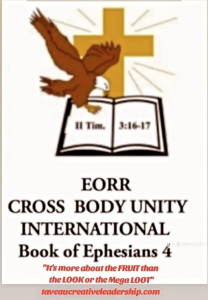
5. The Person’s Relationship with Extended Family, Friends, and Society
Example: Ruth’s loyalty to Naomi (Ruth 1:16).
- Principle: Treat others with honor, kindness, and respect.
- Scriptural Basis:
- Romans 12:10: “Be devoted to one another in love. Honor one another above yourselves.”
- Matthew 5:16: “Let your light shine before others, that they may see your good deeds.”
- Application: Build meaningful relationships that reflect God’s love.
6. The Person’s Relationship with Work, Ministry, or Business
Example: Joseph’s faithfulness in Potiphar’s house (Genesis 39:2-4).
- Principle: Work is an act of worship when done with integrity and diligence.
- Scriptural Basis:
- Colossians 3:23: “Whatever you do, work at it with all your heart, as working for the Lord.”
- Proverbs 16:3: “Commit to the Lord whatever you do, and He will establish your plans.”
- Application: Approach work with a servant-leader mindset and honor God in all you do.
7. The Person’s Relationship with the Saints and the Christian Community
Example: The early church in Acts 2:42-47.
- Principle: Foster unity and encouragement within the body of Christ.
- Scriptural Basis:
- Hebrews 10:25: “Not giving up meeting together, as some are in the habit of doing.”
- 1 Corinthians 12:27: “Now you are the body of Christ, and each one of you is a part of it.”
- Application: Engage in fellowship, accountability, and mutual support.
8. The Person’s Relationship with Ministry or Media Platforms
Example: Apostle Paul’s letters and teachings.
- Principle: Use your platform responsibly to share God’s truth and glorify Him.
- Scriptural Basis:
- 2 Timothy 2:15: “Do your best to present yourself to God as one approved.”
- Matthew 28:19: “Go and make disciples of all nations.”
- Application: Balance humility with boldness in ministry outreach.
9. The Person’s Relationship with Money and Finances
Example: The rich young ruler (Matthew 19:16-22).
- Principle: Handle money as a steward, recognizing God as the ultimate provider.
- Scriptural Basis:
- Matthew 6:24: “You cannot serve both God and money.”
- 1 Timothy 6:10: “The love of money is a root of all kinds of evil.”
- Application: Practice generosity, budgeting, and reliance on God.
10. The Person’s Relationship with Media
Example: Paul’s use of letters to reach the churches.
- Principle: Engage with media—both Christian and secular—with discernment and a mission mindset.
- Scriptural Basis:
- Philippians 4:8: “Whatever is true, noble, right, pure, lovely, admirable—think about such things.”
- Ephesians 5:16: “Making the most of every opportunity, because the days are evil.”
- Application: Influence media for good, guard against worldly influence, and use it for Kingdom purposes.

Conclusion
The 10 Bible Relationships guide us to live lives of godly balance and purpose, with every connection reflecting the love, wisdom, and grace of Jesus Christ. Each relationship is an opportunity to glorify God and model His ways to others.
CONFUSED? crossbodyunity@gmail.com
CONTRIBUTE?
(C)2024 Taveau Creative Leadership All copyrights reserved under international copyright laws
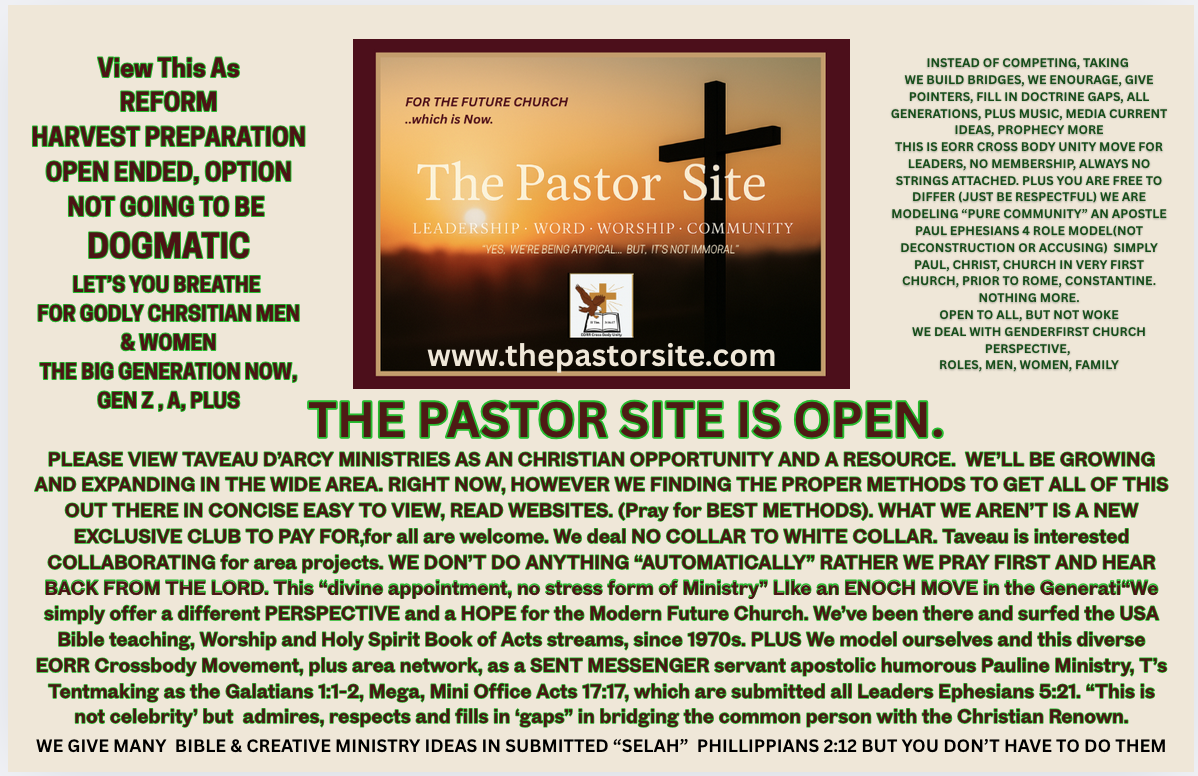
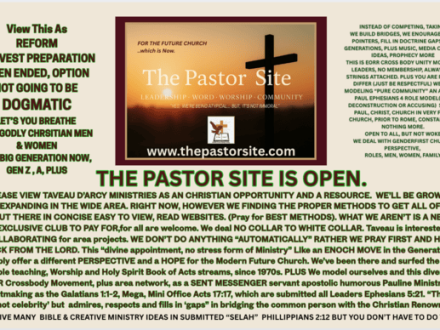

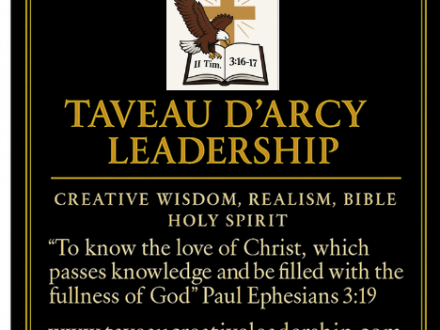
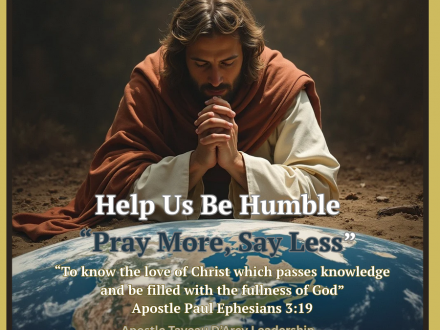




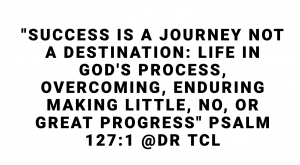

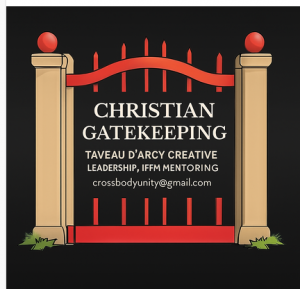
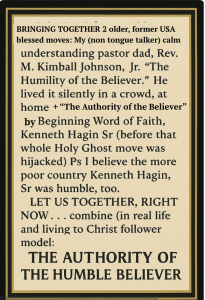






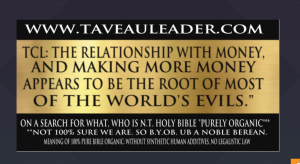



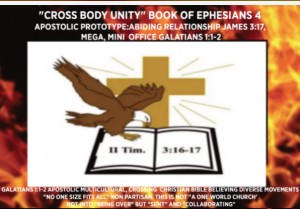


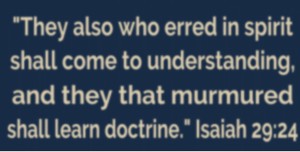

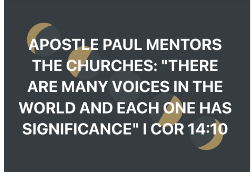

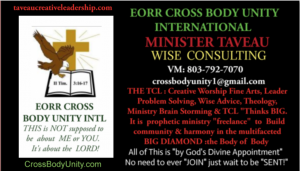

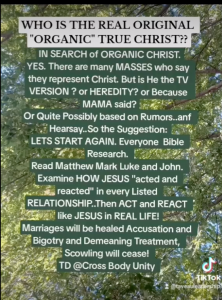

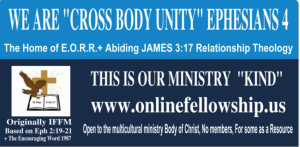


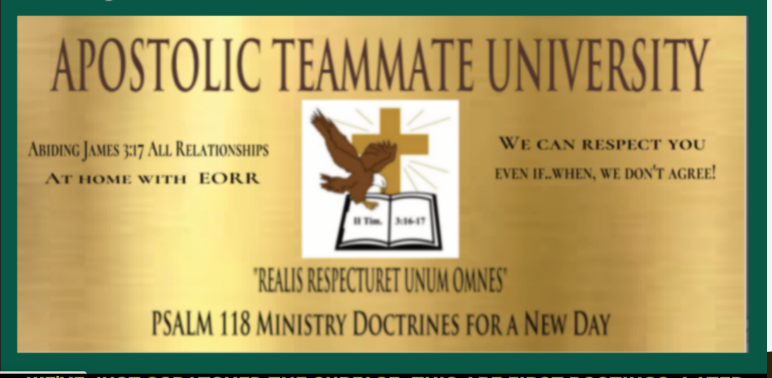
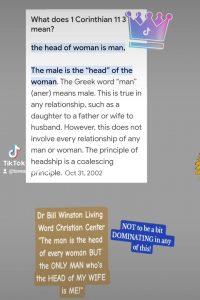

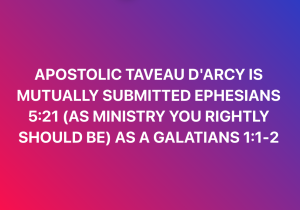
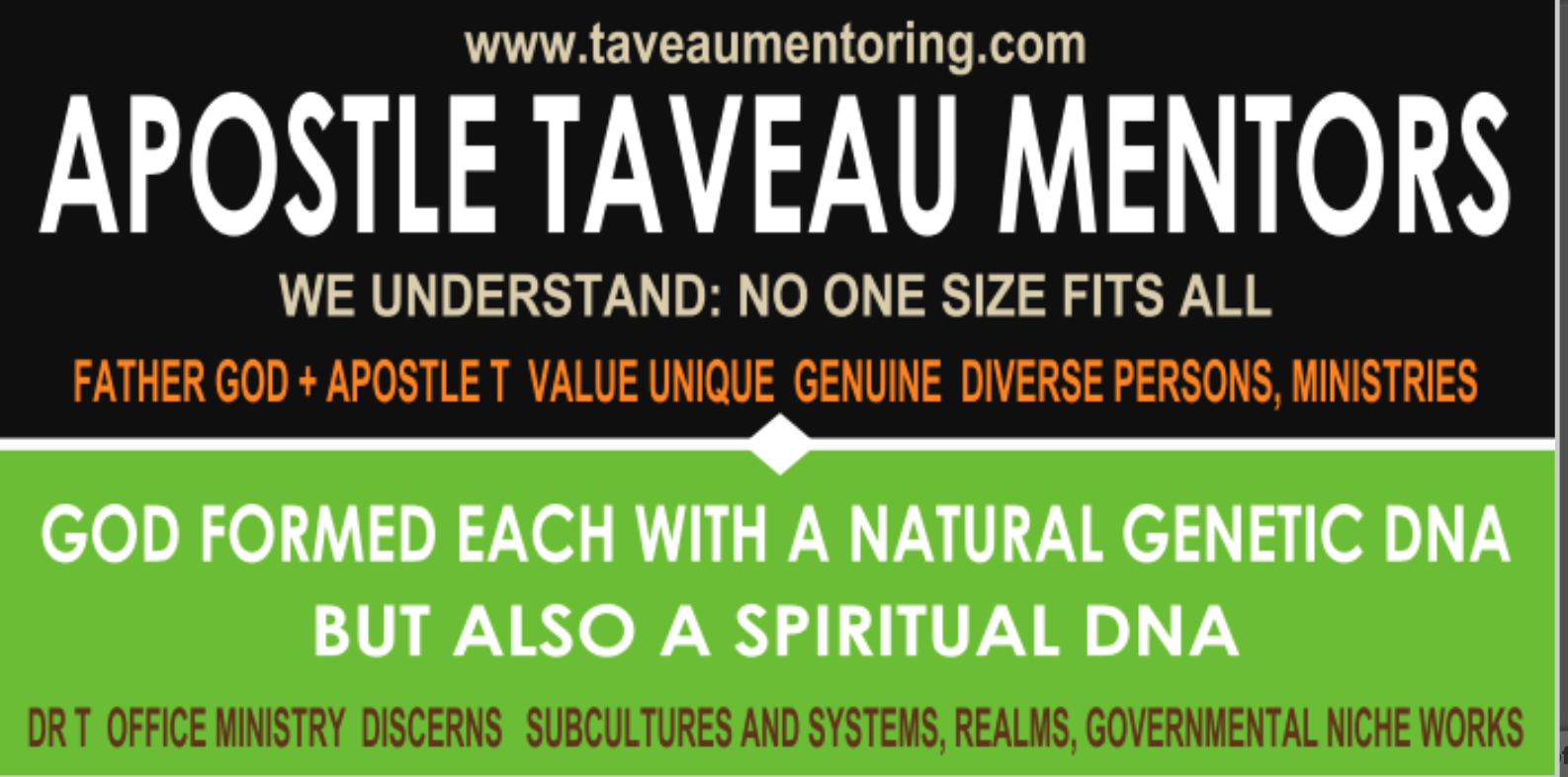

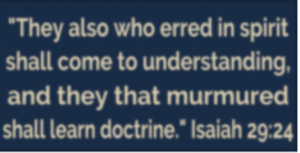
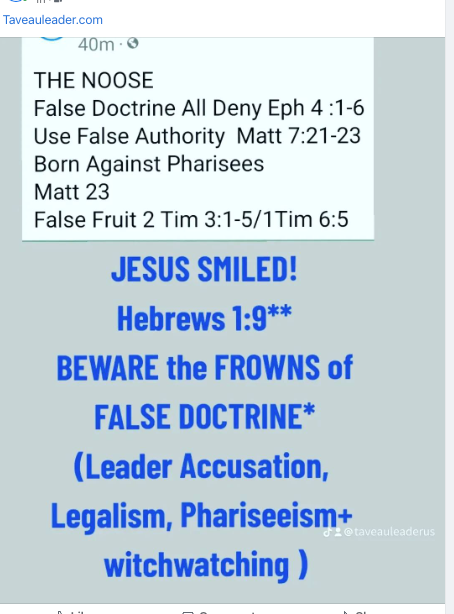

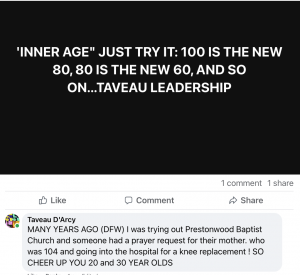


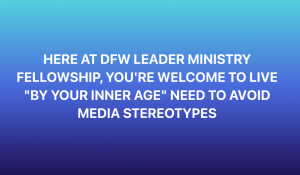

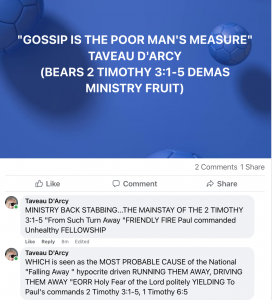

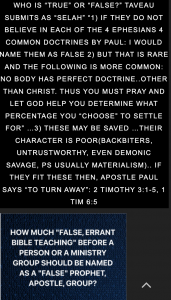
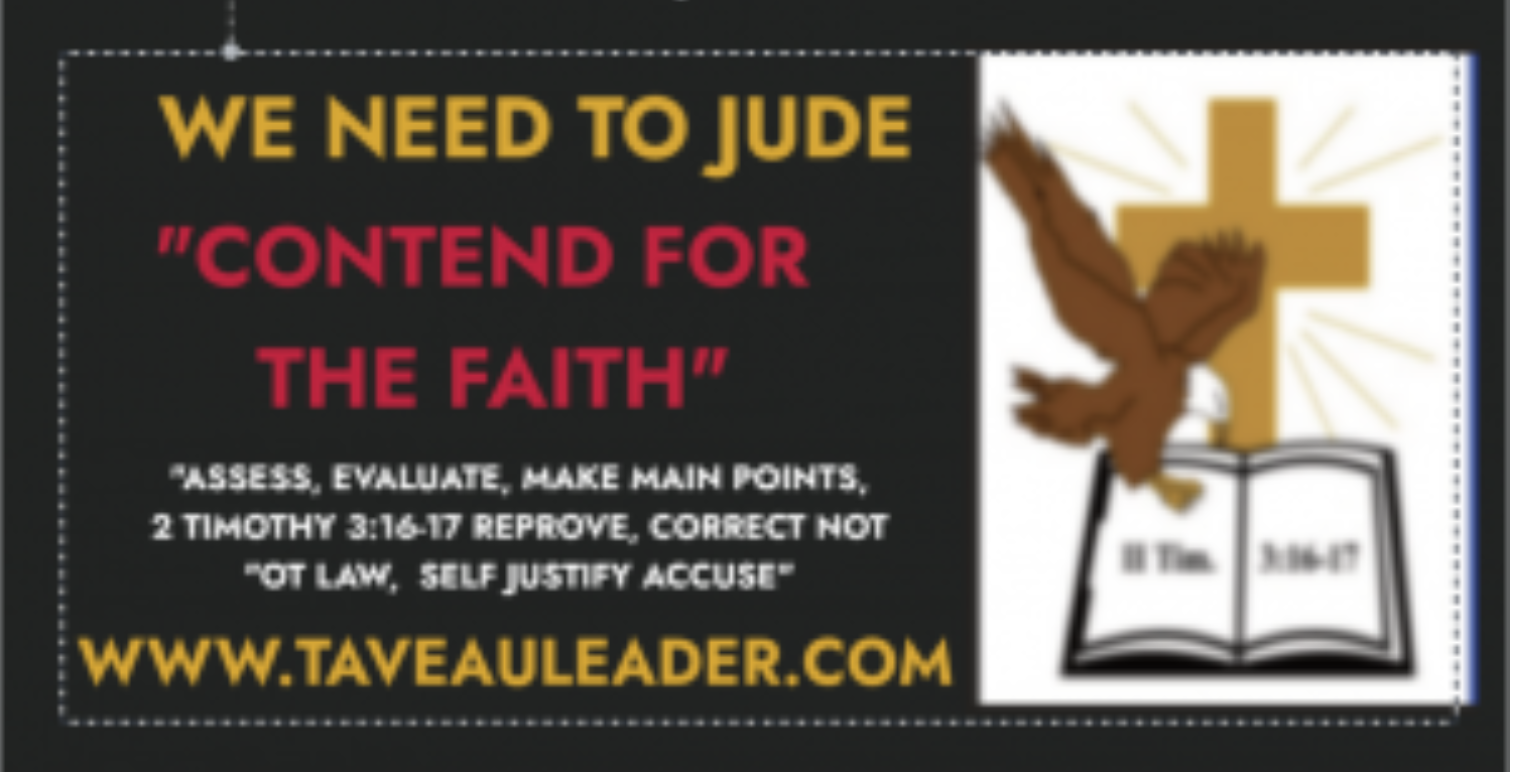
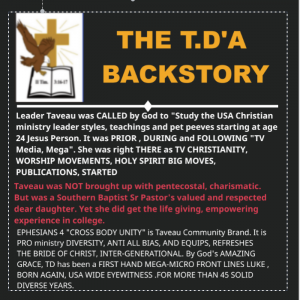



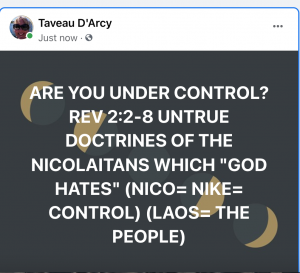
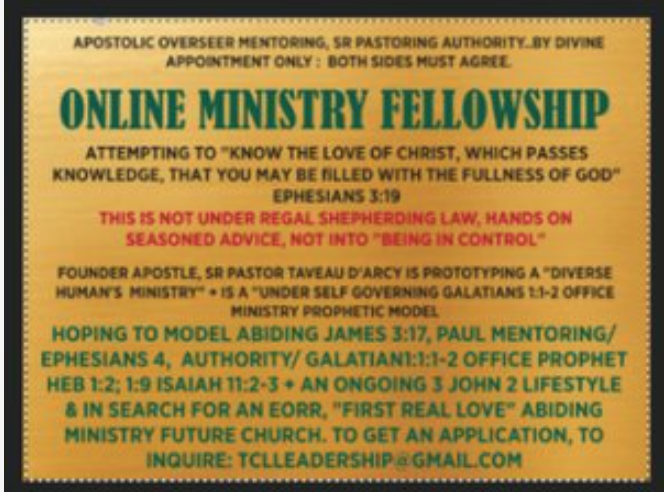
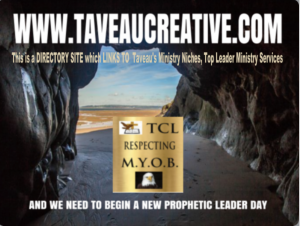

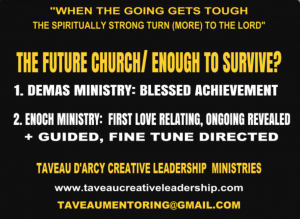



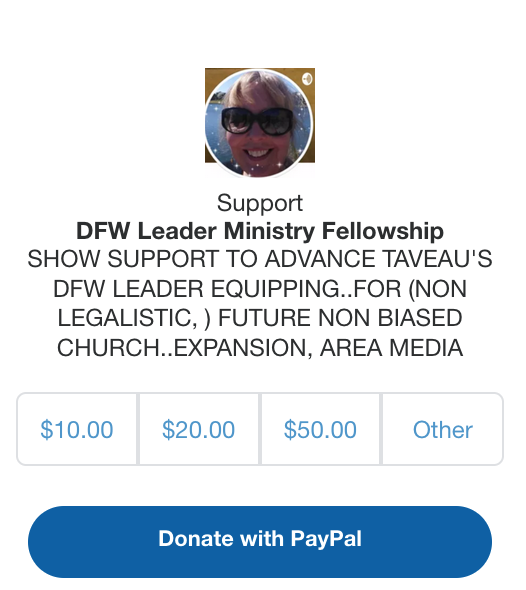

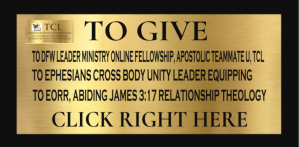
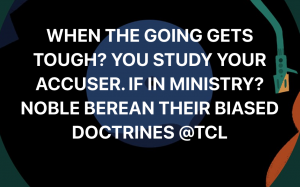
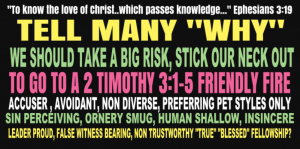

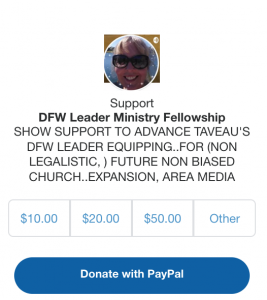
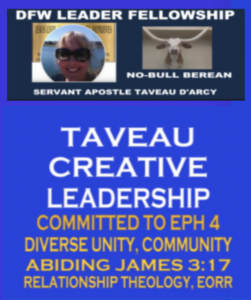

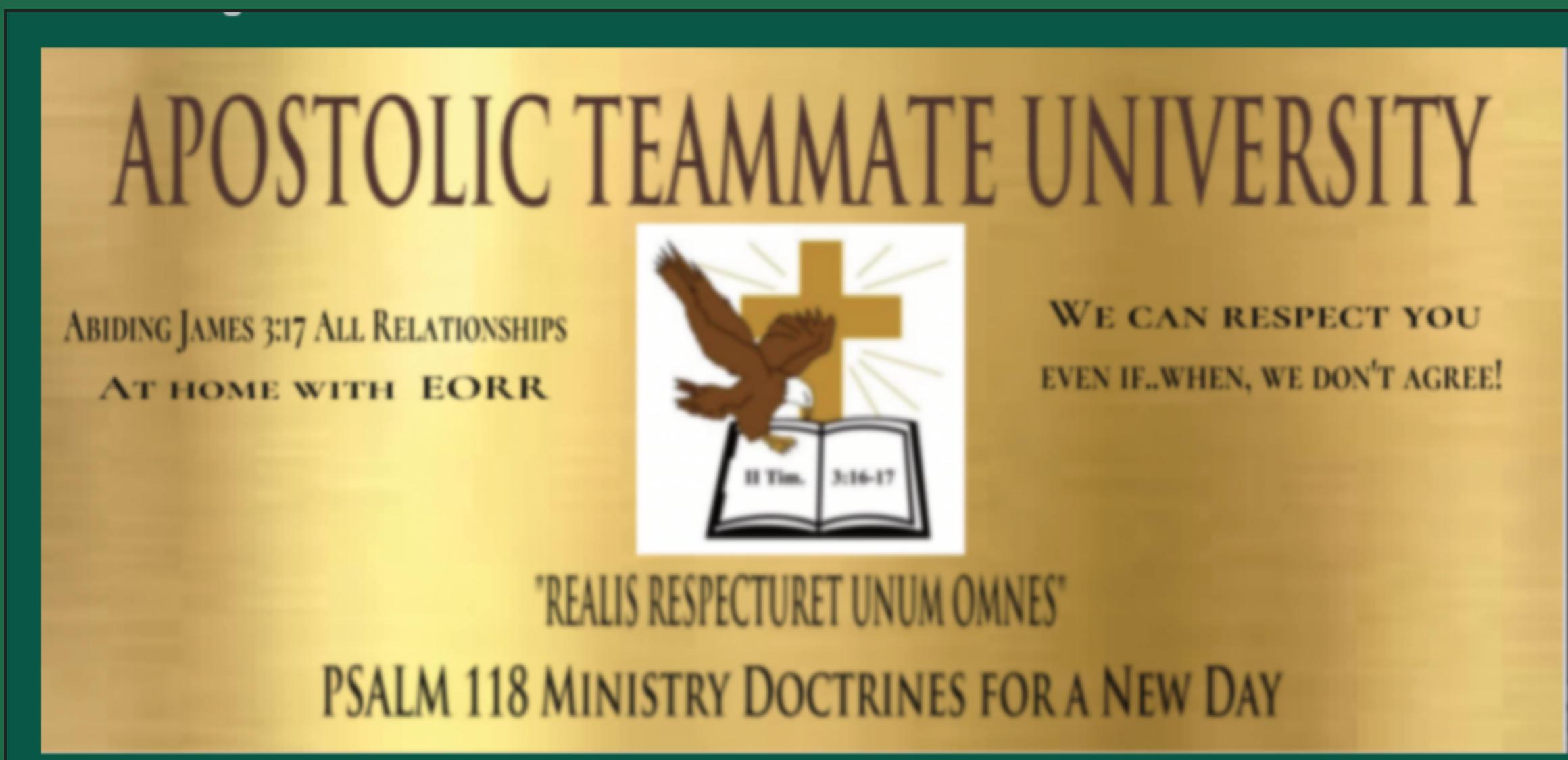

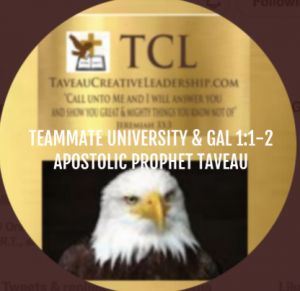
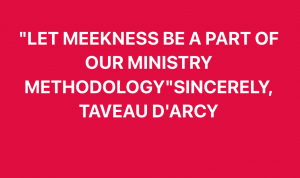



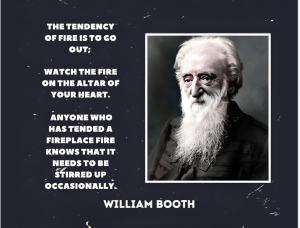


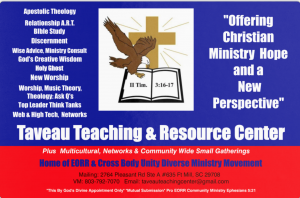


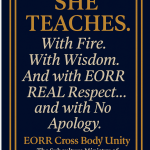
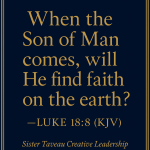


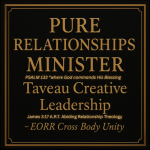







Recent Comments